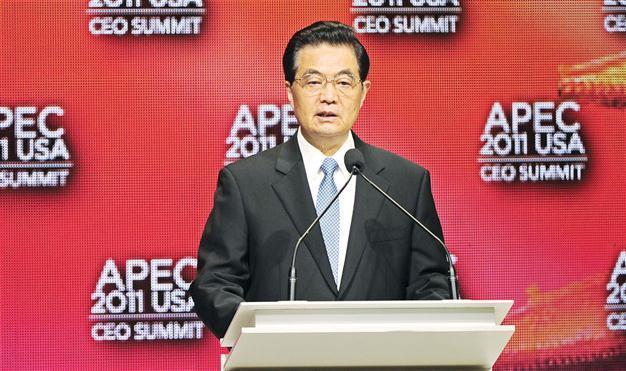Chinese President Hu vows to tackle trade imbalances
BEIJING - Agence France-Presse

China will expand imports ‘in a bid to promote the balance of international payments,’ according to Presidet Hu Jintao. ‘We will strengthen economic cooperation with countries that have substantial trade deficits with China,’ the president says. AFP photo
Chinese President Hu Jintao pledged yesterday to resolve trade imbalances with nations that have huge deficits with the Asian powerhouse, as China marked the 10th anniversary of its accession to the World Trade Organization (WTO).In a speech in Beijing, Hu said China was not intentionally seeking a trade surplus.
“We will strengthen economic cooperation with countries that have substantial trade deficits with China, and work together with them to gradually resolve trade imbalances,” Hu said in the Great Hall of the People. “We will ... actively expand imports to drive the transformation of the foreign trade pattern in a bid to promote the basic balance of international payments. We do not deliberately pursue a trade surplus.”
The United States has recently stepped up criticism of what it says are unfair Chinese trade practices. Some U.S. lawmakers have criticized China’s currency, the yuan, which they say is grossly undervalued, and therefore fuels the U.S. trade deficit and costs jobs.
On Dec 10, official data showed China’s trade surplus had narrowed to $14.5 billion in November from $17 billion in October.
The nation’s overall imports outstripped expectations, expanding by 22.1 percent to $159.94 billion in November, up from the $140.46 billion recorded a month earlier.
Exports also rose on an annual basis, but analysts said the rate of increase was slowing.
To counter this, Beijing is pushing to expand its domestic demand.
Hu said yesterday that total retail sales in China were expected to grow at an annual rate of over 15 percent in the next five years, and reach 32 trillion yuan ($5 trillion) in 2015, making it one of the world’s largest domestic markets.
















